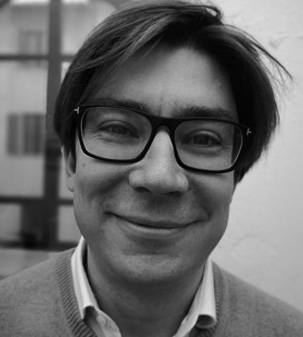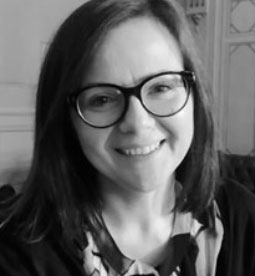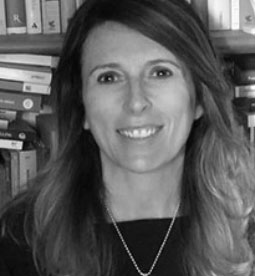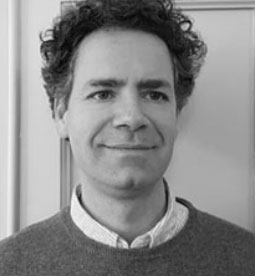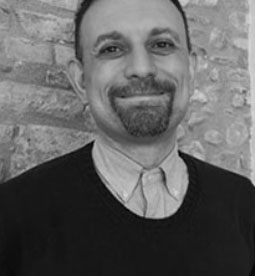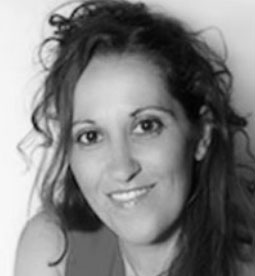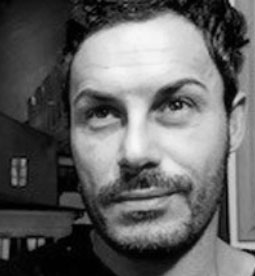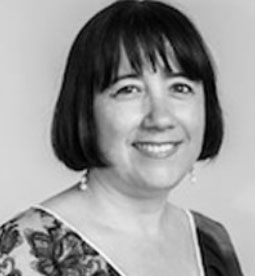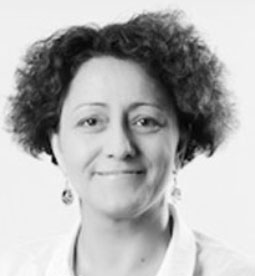Our Faculty
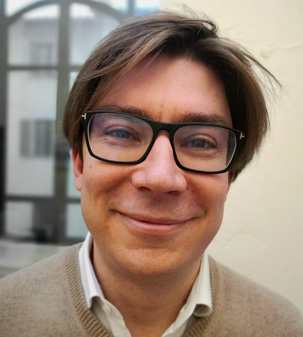
Thomas Brownlees
MBA, Durham University
Courses Taught at ISI
Digital Marketing: Contemporary Strategies for Italian Brands
Brand Management: Made in Italy
Sustainability in the Fashion Industry
Credentials
BA in Law, University of Florence
MSc in Business Management, University of Liverpool
MBA (Masters of Business Administration) Durham University
Teaching Philosophy
Studying abroad gives students superpowers. They are able to see the world with fresh eyes, challenge many long-held beliefs, and realize that there is no “one way” of doing things. In business especially, so much of your expertise and capabilities rely on understanding the context, the culture, and the uniqueness of each country and heritage.
I like to think of my classes as a space where students are not present to absorb information but to discuss ideas. University courses are not about acquiring as much information as possible through endless lectures, but more about opportunities to discuss, debate and engage with a topic, with the assistance of an instructor who is not a “sage on the stage” but a moderator, that helps students understand why things matter.
Most Rewarding Moments
When students, months or years after they’ve come to Florence, reach back to ask for advice or a recommendation, acknowledging that the courses they took at ISI really helped shape their future and career.
Favorite Quote
They may forget what you said, but they will never forget how you made them feel. – Maya Angelou
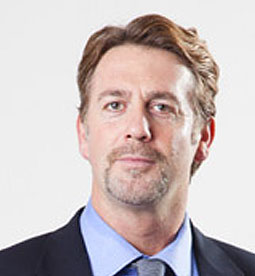
Pierluca Birindelli
Ph.D., University of Florence
Bio
Pierluca Birindelli PhD, Sociologist and Cultural Anthropologist, is a Marie Skłodowska-Curie Alumnus and Docent (University of Helsinki). He teaches at Gonzaga University in Florence, International Studies Institute and New Haven University.
Birindelli earned his PhD in Sociology at the University of Florence and has been a PhD Visiting Fellow at the University of Texas at Austin and at Institut d’Etudes Politiques (Université de Paris). In 2010, he was awarded the qualification of Researcher in Social Sciences (Sociology and Cultural Anthropology) by CNR (Italian National Research Council) and in 2013 became Docent in Sociology at the University of Helsinki. In 2014 he received a Faculty Development Grant by Gonzaga University in Florence to write the monograph The Passage from Youth to Adulthood. In 2016 he was awarded with the prestigious Marie Skłodowska-Curie Individual Fellowship (MSCA) under the European Commission funding program “HORIZON 2020 Excellent Science”. He was nominated (2017) MSCA fellow of the week and awarded with an ulterior grant by the Department of Social Research (University of Helsinki) to carry out the research project “International Student’s Self-Identity Abroad”.
Birindelli taught in several academic institutions: University of Florence, Georgetown University, Kent State University, International Research Master in Social Sciences (University of Helsinki).
He is currently EU Expert in Social Sciences and Humanities (funding program “HORIZON Europe 2021-2027”). Within the European Sociological Association he is an active member of the research networks “Global, Transnational and Cosmopolitan Sociology” (board).
Birindelli has authored a number of articles addressing the themes of individual and collective identity, four books on youth and generations, and two monographs about narrative identity in late Modernity.
Courses Taught at the Institute
- Identity and Culture
- Sociology of the Arts
Credentials
- 2003 Ph.D. in Sociology of Culture and Communication, University of Florence
- 1999 M.A., Media, Communication and Cultural Studies, University of Florence
- 1998 Laurea in Political Science, University of Florence
Honors & Latest Projects
Pierluca Birindelli has published in Italian two books on the passage from youth to adulthood (Clicca su te stesso 2006; I giovani italiani tra famiglia e scuola 2010), a monograph about self-identity in late modernity (Sé: Concetti e pratiche 2008) and a number of articles addressing the themes of individual and collective identity. In English, he is the author of the book The Passage from Youth to Adulthood: Narrative and Cultural Thresholds (2014).
Birindelli adopts a multidisciplinary approach: Sociology; Social and Cultural Anthropology; Psychology, Communication, Narrative Studies.
His research interests include: Individual and Collective Identities; Cultural Globalization and Cosmopolitanism; Education and Human Development in Comparative Perspective; Media, Self and Society. His current research project is a qualitative and comparative study: “The Cultural Experience of International Students: Narratives from North and South Europe”.
Visit his website and the Cultural Experience of International Students blog.
Latest publications
Birindelli, P. (2023). The Experience of International Students: Biographical Narratives and Identities. Soc (2023). https://doi.org/10.1007/s12115-023-00809-0
Birindelli, P. (2022). Narrative Identity: A Personal Roadmap. Franco Angeli: Milano. https://www.francoangeli.it/Libro/Narrative-Identity?Id=28227
Teaching Philosophy
My primary goal is to foster students’ critical thinking and imagination. I believe that the best way to obtain this objective lies in the capacity to construct a dialogic environment, where is crystal clear that learning together, the best we can, is our mission (nothing more, nothing less). Students shall never censor themselves, but always express their opinions upon any theme—and the discussion about sensitive themes shall never be avoided in a social science class—keeping in mind that reading, studying and being curious is the only way to construct thoughtful interpretations. Students should also try to take the challenge of exploring unknown cultural territory, not expecting to receive the “perfect map”— you go from A to B and then to C and so on —in advance.
Most Rewarding Moments
When students express their opinions and at the same time are willing to question them.
Favorite Quote
The primary task of a useful teacher is to teach his students to recognize “inconvenient” facts—I mean facts that are inconvenient for their party opinions. And for every party opinion there are facts that are extremely inconvenient, for my own opinion no less than for others (Max Weber)
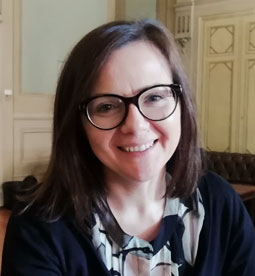
Federica di Sarcina
Ph.D., University of Pavia
Course Taught at the Institute
The European Union
Credentials
University of Pavia, History of European Integration, Ph.D.
Relevant Projects / Publications
Books
F. Di Sarcina, L’Europa delle donne. La politica di pari opportunità nella storia dell’integrazione europea (1957-2007), Bologna, Il Mulino, 2010.
Joint Publications
F. Di Sarcina (eds.), Cultura di genere e politiche di pari opportunità. Il gender mainstreaming alla prova tra UE e Mediterraneo, Bologna, Il Mulino, 2014.
F. Di Sarcina, L. Grazi, E. Sergi (eds.), Obiettivo Europa. L’insegnamento dell’integrazione europea a scuola, Siena, CRIE, 2013.
Articles
Le service «Information Femmes» de la Commission européenne et l’héritage de Fausta Deshormes La Valle, in E. Gubin et F. Thébaud (dir., avec la collaboration d’A.-L. Briatte), L’Europe, une chance pour les femmes ? Le genre de l’intégration européenne, Paris, éditions de la Sorbonne, 2018
La Comunità/Unione europea e la questione femminile. Origini, sviluppi e sfide future, in M. Minesso (a cura di), Welfare, donne e giovani in Europa nei secoli XIX-XX, Milano, Franco Angeli, 2015, pp. 285-298
Teaching Philosophy
My main goal is to create an open, non-discriminatory, and friendly learning environment in which students can develop a critical thinking and an increasingly awareness of the world they live in.
Most Rewarding Moment
When lectures trigger a lively debate among students and they appreciate the mutual exchange of ideas even in their free time.
Favorite Quote
“Never surrender. Never give up the fight” (Emmeline Pankhurst)
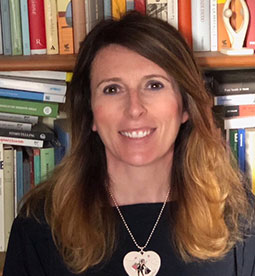
Francesca Passeri
Ph.D., University of Florence
Course Taught at the Institute
Intercultural Communication
Credentials
2012- Ph.D. Telematica e Società dell’Informazione, University of Florence and National Research Council (C.N.R.)
2001- Master in Media and Communication, University of Florence
1998- School of Law, University of Florence
Relevant Projects / Publications
– L’accesso alla professione giornalistica. Canali alternativi al praticantato. Scuole e Università di giornalismo, in “Manuale di Diritto dell’informazione e della comunicazione”, Cedam 1999.
– Social Network e diritti di libertà, in Informatica e Diritto, n. 2 2009.
– Open Data per una Pubblica Amministrazione trasparente. Dimensioni coinvolte e approcci possibili, in “Informatica e Diritto”, n. 2 2010.
– E-participation, I contributi delle tecnologie dell’informazione nella partecipazione dei cittadini ai processi di policy-making. Livelli, modi e soggetti coinvolti, forthcoming.
– Founder and member of FLICK (cultural association), Factory for Learning International Culture and Cross Creative Knowledge.
– Member of Common Board – Alumni Association, College of Political Science Cesare Alfieri, University of Florence.
Teaching Philosophy
I love to create a stimulating and really communicative environment in class. I invite my students to perceive and understand human diversity by exploring cultural differences within a context of constantly changing global systems, and also to answer the following question: how do people understand one another when they do not share a common cultural experience? I also encourage my students to apply theoretical skills to reality and to their own experience as human beings living abroad, and to analyze Italian culture and Florence as study subjects as well. And I like sharing my enthusiasm with my students!
Most Rewarding Moments
When I clearly realize that students went far beyond the simplistic assimilation of theoretical notions and learned how to apply them to reality. When they have been able to build a symbolic “bridge” between theories and practices.
Favorite Quote
“Mama always said life was like a box of chocolates. You never know what you’re gonna get.” (Forrest Gump)
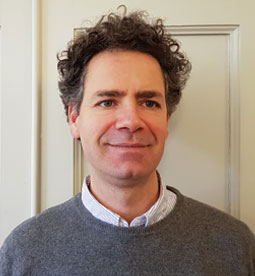
Simone Testa
Ph.D, Royal Holloway University of London
Course Taught at the Institute
Florence: The Story of the City
Credentials
Royal Holloway University of London, Ph.D.
University of Edinburgh, MSc
University of Bologna, BA
Relevant Projects/Publications
Graphic Novel: Project creator and writer of the texts and co-author of Introduction of Vita di Niccolò Machiavelli cittadino fiorentino (Bologna: Minerva edizioni, forthcoming in February 2019).
Monograph: Italian Academies and their Networks (1525-1700). From Local to Global, in Italian and Italian American Studies series, ed. by Stanislao Pugliese (New York and Basingstoke: Palgrave MacMillan, 2015), 304pp.
Critical Edition: Scipione di Castro e il suo trattato politico. Testo critico e traduzione inglese inedita del Seicento, in Cinquecento series (Manziana [Rome]: Vecchiarelli, 2012), 203pp.
Reviews
Machiavelli. Enciclopedia machiavelliana, 3 vols, ed. by Gennaro Sasso e Giorgio Inglese (Rome: Istituto dell’enciclopedia, 2014), in Modern Language Review, 112 (2017), pp. 156-59
Gli Incogniti e l’Europa, ed. Davide Conrieri (Bologna: I libri di Emil, 2011), in Modern Language Review, 108 (2013), pp. 311-12
Storie inglesi. L’Inghilterra vista dall’Italia tra storia e romanzo. Con l’edizione del Cappuccino Scozzese di Giovan Battista Rinuccini (1644) e del Cromuele di Girolamo Graziani (1671), ed. Clizia Carminati and Stefano Villani (Pisa, Edizioni della Normale, 2011), in Modern Language Review, 107 (2012), pp. 1271-72
The first translations of Machiavelli’s ‘Prince’. From the sixteenth to the first half of the nineteenth Century, ed. Roberto De Pol (Amsterdam–New York: Rodopi, 2010); Alessandra Petrina, Machiavelli in the British Isles: two early modern translations of ‘The Prince’ (Farnham: Ashgate, 2009), in Modern Language Review, 107 (2012), pp. 634-36
Guido Ruggiero, Machiavelli in Love. Sex, Self, and Society in the Italian Renaissance (The Johns Hopkins University Press, 2007), in Italian Studies, 65, 3 (2010).
Teaching Philosophy
I try to convey the idea that to speak about the past is a way of speaking about the present, and also that “history is a foreign country”. I also aim to make students aware how much their experience in Florence is part of an ancient tradition, to which they bring new life and emphasis by looking at the past with the eyes of their generation.
Most Rewarding Moment
I love when students participate in the class with questions and doubts, and when they realize the direct link between the past and the present.
Favorite Quote
“Who dares to teach must never cease to learn” (John Cotton Dana)
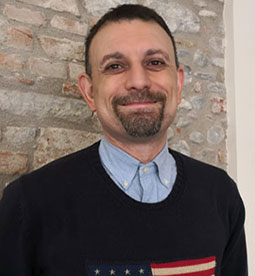
Carlo Lorini
M.A, University of Birmingham
Course taught at the Institute
The Florence Experience I: Beginning Italian I
Credentials
University of Birmingham, Shakespeare Institute, M.A.
University of Florence, Laurea
Certificate for teaching Italian as a Foreign Language – DITALS, Università per Stranieri di Siena
Relevant Projects / Publications
June 2016, Speaker at the British Graduate Shakespeare Conference at the Shakespeare Institute in Stratford-upon-Avon (U.K.)
June 2016, Speaker at the International conference at the University of Padua (Italy), “ ‘Fair Padua, nursery of arts’ : Shakespeare and Padova 2016.’
April 2016, Speaker at the International conference at the University of Portsmouth (U.K.), ‘Shakespearian Communities.’
Summer 2011, Speaker at the World Conference on Shakespeare in Prague (the International Shakespeare Association)
Summer 2010, Speaker at the International conference at the University of Hobart (Tasmania) Shakespeare’s spaces
Summer 2008, Speaker at the International conference at the University of Reading (U.K.) Land and landscaping
Summer 2016, Shakespeare in Oxford Guest lecturer
Teaching Philosophy
Teaching students means setting an example. I like to see myself as a facilitator, a tool they can use in order to discover the language and the culture behind it. I also believe that learning a language means to explore its world, in any possible way, both in the classroom and outside it.
Most Rewarding Moment
When students experience the language outside of the classroom and suddenly discover that they can establish some sort of communication with native speakers.
Favorite Quote
“Once more unto the breach, dear friends, once more” (William Shakespeare)
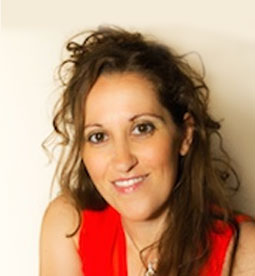
Gloria Marco Munuera
Ph.D., RMIT University, Melbourne
Courses Taught at the Institute
Introduction to Photography: Portfolio of Florence
Introduction to Digital Photography
Credentials
Ph.D. in Fine Arts (Photography), RMIT University, Melbourne, Australia
Master of Photography at the Libera Accademia di Belle Arti, Florence, Italy
B.F.A/M.A. Fine Arts at the Polytechnic University “San Carlos”, Valencia, Spain
B.A. Classical Music, Royal Conservatory of Music, Albacete, Spain
Relevant Awards/Exhibitions
-2017 “PhotoPatagonia” International Festival of Film and Alternative Photographic Processes, Complejo Cultural Santa Cruz, Rio Gallegos, Argentina (catalogue).
-2016 “Plus” Sala Sempere, Museo de la Universidad de Alicante (MUA), Alicante, Spain (catalogue).
-2016 “Electrical Bodies” Las Cigarreras, Photoalicante International Photography Festival, Alicante, Spain.
-2015 Honourable Mention in Fine Arts Portfolio Photography, MIFA Moscow International Foto Awards, Moscow, Russia
-2015 “The Fifth Annual Exposure Photography Award” Louvre, Paris, France
-2015 “The Emerging Image” University of Wisconsin-Madison, Madison, Wisconsin, USA.
-2014 3rd: prize Category Fine Art Special Effects, MIFA Moscow International Foto Awards, Moscow, Russia.
-2013 Finalist in the London International Creative Competition 2013, London, United Kingdom
-2013 “Meeting in Florence 2013” International Art Exhibition at Dante’s House Gallery, Società delle Belle Arti, Florence, Italy.
-2013 “Small” International Photo Exhibition at Genkan Gallery, Matsudo-shi, Chiba, Japan.
-2012 “4 por 4 más 1” La Lisa Arte Contemporáneo Gallery, Albacete, Spain.
Teaching Philosophy
In teaching, I feel it is important to provide a solid background to basic photographic techniques through practice before moving on to any digital techniques. The students must feel that they have mastered the control of their imagery. My teaching methods stress the importance of conceptual thinking before digital application assistance. I continue with my professional work not only to update skills, but also to instill a passion for photography and to feed inspiration of this creative practice to my students.
Most Rewarding Moments
Final photography student shows. To see students enjoying the work they have produced and sharing it with enthusiasm and pride to colleagues and visitors.
Favorite Quote
“When words become unclear, I shall focus with photographs. When images become inadequate, I shall be content with silence.” (Ansel Adams)
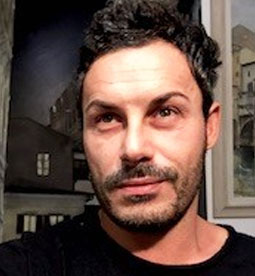
Tiziano Lucchesi
M.F.A., Academy of Fine Arts, Florence
Courses Taught at the Institute
The Art of Buon Fresco
Drawing: The Human Figure
Beginning/ Advanced Oil Painting
Credentials
1995-2000 Degree: Master’s Degree cum laude, Academy of Fine Arts, Florence, Italy
1998 Diploma in Stone Working, Arezzo
1990-1995 Art Institute of Florence (Istituto Statale d’Arte di Firenze)
1995: Diploma in Applied Arts
1993: Diploma in Fine Arts
ARTISTIC SKILLS AND COMPETENCES
In-depth knowledge of ancient wall painting techniques and organic supports, as described in the best-known art manuscripts. Teaching since 2003 at Florence-based institutions (see Work Experience section of CV)
• Wall paintings restorer since 2000 with participation in interventions of particular historic and artistic interest (again, see Work Experience). Since 1995 independent realization of more than 100 murals in fresco and dry, commissioned by both public and private clients, for a total extension of about 2000 square meters, including: the outdoor structure of a medieval monastery, a town hall, some facades in historic centres, and numerous interiors of villas, hotels, and cafes.
• My own painting also relies on the use of mineral materials suitable for fresco technique, adopting methods and recipes both ancient and contemporary. This allows me to promote a pictorial-figurative as well as technical-material kind of art that I have displayed in many exhibitions and public events. Personal exhibitions in 2005, 2006, 2007 (a catalog of my works came out in 2008).
• Among the painting techniques I use are fresco, fresh dry, paint whitewash, encaustic, graffiti on mortar (both ancient and modern), trompe l’oeil, grotesque, ambient decorations , false walking surfaces with mortar, egg, glue, wax, wax cold, wax – resins, “tempera grassa”, oil, oleo-resins, casein, mosaic, fake marble in plaster, fake marble in soap
LATEST RESTORATIONS
2016 Director of Restoration: Palazzo del Gianbologna – Florence – Restoration of a nineteenth-century painting, and XVI sec. (Borgo Pinti, Santa Croce Florence)
2015 Director of Restoration: Palazzo Guadagni – Florence – Restoration of a nineteenth-century painting at Biblioteca Thovar, the ground floor of Palazzo Guadagni. (Piazza Santo Spirito, Florence)(Soprintendenza per i beni culturali di Firenze)
2015 Instructor:Ex Scuderie- Istituto Statale d’Arte di Firenze – Florence – Restoration of an early eighteenth-century ceiling. (Soprintendenza per i beni culturali di Firenze)
2014 Director of Restoration:Palazzo Guadagni – Florence – Restoration of a nineteenth-century painting, two rooms on the first floor. (Piazza Santo Spirito, Florence)(Soprintendenza per i beni culturali di Firenze)
2013 Director of Restoration: Palazzo Giugni – Florence – Restoration of a mural dating from the first half of the sixteenth century on the second floor. (Soprintendenza per i beni culturali di Firenze)
SELECTED WORKS OF ART
• Marzo 2013 Decorations of the rooms on the first floor of the Renaissance Palazzo Giugni. Firenze
• November 2012 Decorations of the rooms on the third floor of the Renaissance Palazzo Giugni. Firenze
• April 2009 Decoration of the ceiling on the third floor of the Renaissance Palazzo Giugni. Firenze
• December 2008 Decoration of the Hall ceiling in a Grand Hotel Miravalle- San Miniato Pisa
• July 2007 creation of large fresco in a village on Lake Como, Italy • July 2007: creation of two works with the “Buon fresco” technique in Taceno, near Lake Como, Italy
• February 2007: creation of a fresco in the Florence Art Academy with my students
• February 2006, Cow Parade, Italy. Decoration of one 51 Italian cows displayed in the piazzas of Italy. Sold at auction to benefit the Meyer Hospital in Florence
LATEST EXHIBITIONS
• 2006 Exhibition of three works Galleria d’Arte, “Atelier d’Arte” di Franceschi Eliana, Lucca
• 2007 Personal Exhibition – Portraits, San Miniato (Pisa) • 2007 Personal Exhibition – Portraits, Villa Zappala, Turin “ Introduction of Vittorio Sgarbi
• 2008 Personal Exhibition “Speziali” Castello di Lari PISA (Author Catalogue)
LATEST AWARDS AND HONORS
• Luglio 2009 Selection and Prize-giving by “Muri d’Autore” and Comune di Valloria – Imperia for a painting door in the city
• October 2008 Recognition from the committee created by Vittorio Sgarbi. Prize-giving by “Muri d’Autore” and Comune di Gavazzana – Alessandria Mantova, for a mural painting in the city
• September 2008 Prize-giving of the contest “GUIDIZZOLO IN ARTE” organized by the Associazione Franco Bombana for a mural painting.
Teaching Philosophy
I strongly believe in the importance of passing on artistic traditions. The artists of the past also studied for twenty years in the master’s workshop, before becoming masters themselves. Having been a student, I understand the importance of engaging my students in exciting ways. What I like to do in my classes is explain theory and allow the students absorb these lessons when performed in practice. How was a Roman painting made compared to a Greek or Oriental one? How did they paint on walls in the Middle Ages or the Renaissance or the Baroque period? How is a famous painting like the Venere by Botticelli or the Monnalisa by Leonardo made? All this information has been handed down to us thanks to the meticulous work of historians and artist-writers, and now, thanks to the technology of restoration, we are able to evaluate the results and appreciate them even more. The art world is beautiful and fascinating, and, like everything else, in order to achieve significant results, it requires commitment and dedication. I wish to teach my students this lesson.
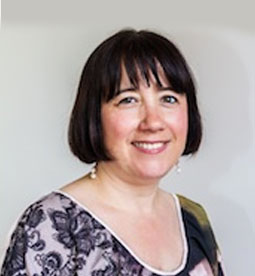
Catia Santi
Laurea, University of Florence
Courses Taught at the Institute
The Florence Experience I: Beginning Italian I
The Florence Experience II: Beginning Italian II
The Florence Experience III: Intermediate Italian I
The Florence Experience IV: Intermediate Italian II
The Florence Experience V: Advanced Italian
Credentials
July 2015 – Candidate for Certification Ditals II – advanced level – Università per Stranieri di Siena.
March – June 2006 – Course Advanced “ALIAS” teaching Italian – Univertà Ca’ Foscari di Venezia
March-May 2001 – Master in Communication – Private Institute METAUNIVERSITY – Roma.
January – June 1998 – POST-GRADUATE course in “Language & Communication” – University of Firenze – Linguistic Department.
July 1996 – Degree in Foreign Languages and Literatures, University of Firenze. Specialization in “European Linguistics”. Grade: 110/110 and laudem.
From March to April 1993 – Training course on “Teaching Italian as a second language” at Koinè School – Firenze.
Relevant Publications
Currently one of several authors writing an Italian language book for beginners and implementing the latest research for higher education specifically for American students. To be published by University Florentine Press in December 2014.
December 2013: Penza State University – International Conference on Language Teaching: Language in Higher Education – Abstract: “The main difficulties in teaching Italian language in a monolingual and monocultural group.”
June 2005: “IdeaDue” – textbook of Italian language for foreign students: Communication & Grammar – Intermediate and Advanced – Progetto Lingua – Firenze
July 2004: “IdeaUno” – textbook of Italian language for foreign students: Communication & Grammar- Elementary – Progetto Lingua – Firenze
May 2000 and June 2001: Article – “History of Linguistics” – FOCUS Magazine
Teaching Philosophy
I believe in teaching my language and my culture with enthusiasm. In the majority of evaluations that I have read, many students wrote that I am patient and positive with them. This sentiment is, for me, a big success because I have communicated myself, my culture, and my country effectively. Thanks to this, students can bring at home a piece of Italy. My philosophy of education has the following goals: to give all students the instruments for good and efficient communication in Italian and to allow for the possibility of a better understanding of Italy and Italians. I believe that language is the secret code for the culture.
Most Rewarding Moments
When students come to me and ask me something in Italian that is not in relation to the class but is a piece of information that they want to know, I see in their eyes the surprised pleasure of being able to communicate in Italian. This is very rewarding for me.
Favorite Quote
”Il buon insegnamento è per un quarto preparazione e tre quarti teatro” (Galileo Galilei).
My contacts
Email: [email protected]
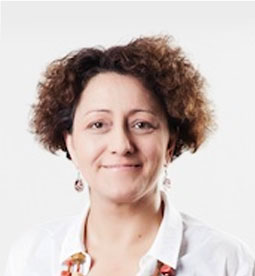
Serena Baldini
Laurea, University of Florence
Courses taught at the Institute
The Florence Experience I: Beginning Italian I
The Florence Experience II: Beginning Italian II
The Florence Experience III: Intermediate Italian I
The Florence Experience IV: Intermediate Italian II
The Florence Experience V: Advanced Italian
Credentials
Three-Year Master Degree, School of Counseling, Centro di Ascolto e Orientamento Psicoanalitico di Pistoia e Firenze, 2014. Concentration field: Education. Dissertation Title: Dalla questione del paesaggio al paesaggio di Question.
Master in Didactics of Italian as a Second Language and Promotion of Italian Culture, University “Ca’ Foscari”, Venice, Italy, 2006. Dissertation Title: Issues related to the motivational aspects of Language Learning and didactic projects for monolingual American classes.
Annual Specialization post-graduate course in Language and Communication, Department of Linguistics , University of Florence, Italy, 1997
Laurea in Philosophy, University of Florence, Italy, 1996. Dissertation Title: Vilfredo Pareto- Thoughts and Concepts of Society
Relevant Projects / Publications
S. Baldini – D. Marini, “Vorrei. Corso di lingua italiana di livello elementare 1”.Libro di testo e libro degli esercizi. Firenze University Press, Florence 2016.
Campi che fuggivano, (When the fields were running, English version of the prose translated by G. Dragnea Horvath and D.S. Butterworth), in “Voyages, Rethinking Nature and its Expression”, Winter 2015, published by Gonzaga University in Florence. (http:// www.voyagesjournal.net)
Counseling e il nuovo status del docente. Esperienze nell’insegnamento dell’italiano in classi monolingui anglofone, in collaboration with David Marini, in “Voyages, Rethinking Nature and its Expression”, Summer 2013, Gonzaga University in Florence.
Teaching Philosophy
I want to share my enthusiasm for the Italian language and the Italian culture. I believe it is essential to involve students actively in their learning experience. I seek to foster students’ creativity and to encourage their active participation in class and real interaction with the Italian environment.
Most Rewarding Moments
When students create situations of spontaneous interaction in Italian with the teacher and among themselves.
When students show a desire to learn and know more about Italian culture and to discover the “world outside “of the classroom.
Favorite Quote
“I hear and I forget, I see and I remember, I do and I understand.” (Chinese saying).

